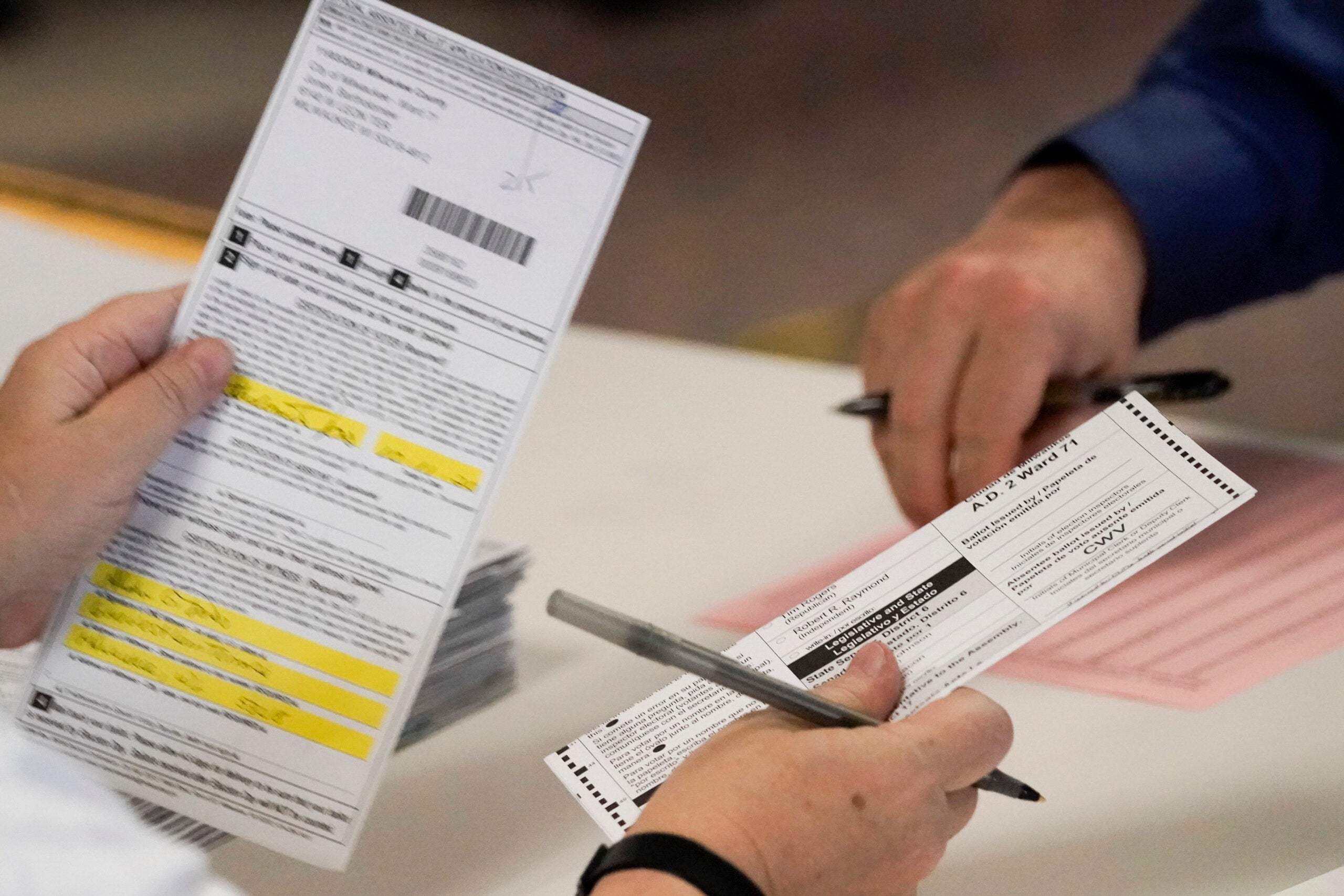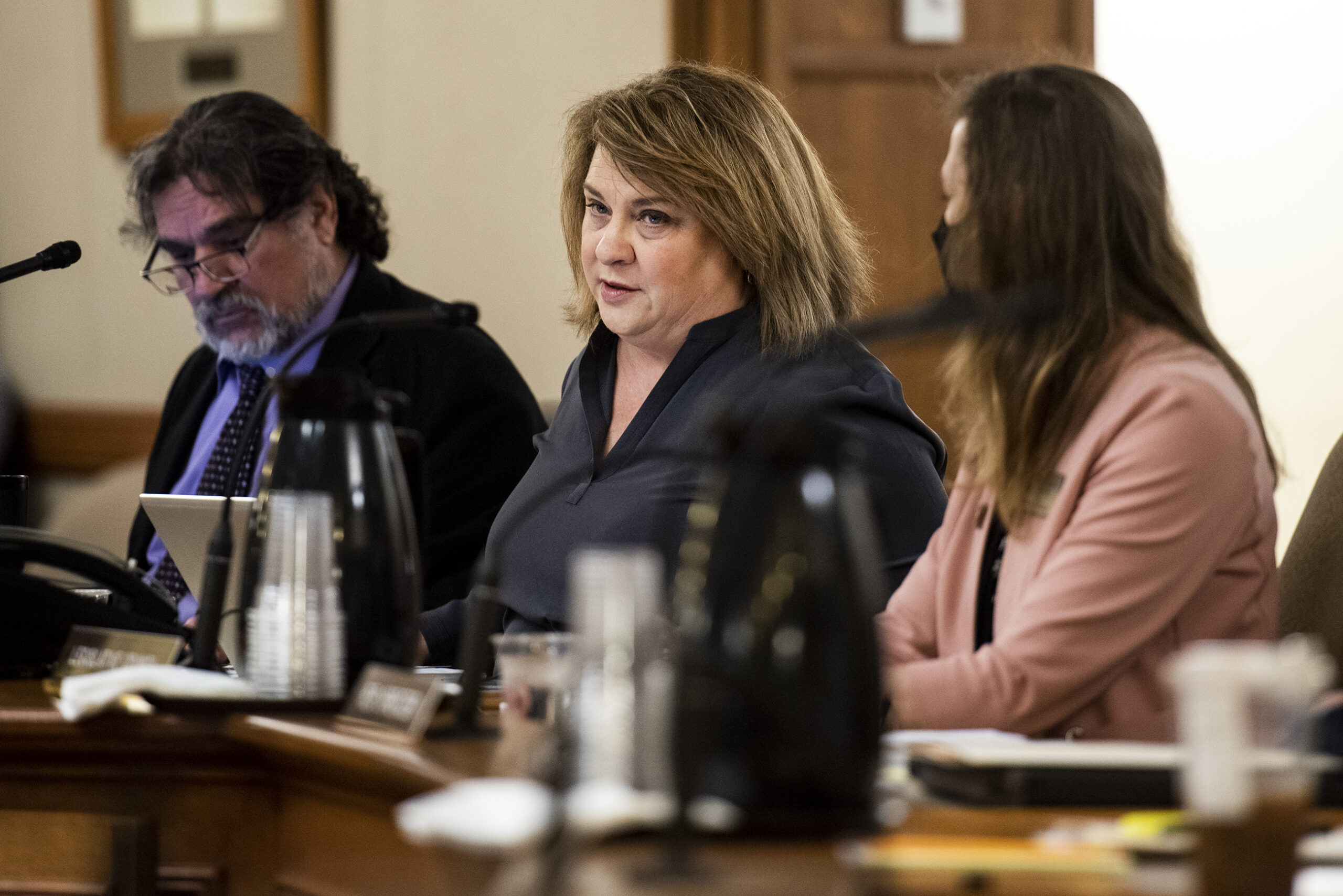The former deputy director of Milwaukee’s election commission was charged with election fraud and misconduct in public office Friday after she allegedly fraudulently requested military absentee ballots and sent them to a state lawmaker last week.
Kimberly Zapata, who was fired by Milwaukee Mayor Cavalier Johnson Thursday, told investigators she sent the improperly-obtained military ballots to state Rep. Janel Brandtjen, R-Menomonee Falls, on Oct. 25. She now faces three counts of election fraud involving absentee ballots and one felony count of misconduct in public office, according to a criminal complaint filed by the Milwaukee County District Attorney’s Office.
Zapata, who oversaw absentee ballot voting in her former role, told investigators she requested the absentee ballots under false names to “show how easy it is to commit fraud in this manner,” according to the complaint.
News with a little more humanity
WPR’s “Wisconsin Today” newsletter keeps you connected to the state you love without feeling overwhelmed. No paywall. No agenda. No corporate filter.
The news comes days before the midterm election and as scrutiny around elections and election integrity is on the forefront of many voters’ minds across the state and nation.
Zapata’s actions “undermined the trust of the public, of members of our armed forces, and of her fellow election workers,” Wisconsin Elections Commission Administrator Meagan Wolfe said.
“While this incident is a deeply unfortunate violation of trust, it shows that our strong legal and election systems worked as intended to root out this alleged crime,” Wolfe said in a statement.
During a campaign stop Friday morning, Wisconsin Attorney General Josh Kaul said it was of “critical importance” to protect the integrity of elections.
“If people break our laws, no matter what their motivation is for breaking our election laws — whether it’s to try to purportedly demonstrate some flaw in the system, or for another reason — we’re going to hold them accountable,” Kaul said.
What does the complaint say?
Zapata, 44, had worked with the Milwaukee Election Commission for the last six years. She served as the deputy director since June 2022. Part of her duties included supervising voter registration and absentee ballot voting.
The complaint states the ballots that Rep. Brandtjen received at her home address were addressed to Holly Brandtjen, Holly Jones and Holly Adams.
The fake military ballots were mailed by clerks in Menomonee Falls, Shorewood, and South Milwaukee and were requested through the MyVote Wisconsin website on Zapata’s work laptop on the morning of Oct. 25. The Milwaukee resident used her municipal login credentials to access the MyVote Wisconsin database to find Brantdjen’s home address.
According to the complaint, Claire Woodall-Vogg, executive director of Milwaukee Election Commission, sent Zapata an article and statement from Brandtjen on Oct. 31 which discussed the ballots she received in the mail.
In that statement, Brandtjen said she believed “someone was trying to point out how easy it is to get military ballots in Wisconsin.”
Zapata told Woodall-Vogg “she has a point,” the complaint said.
On Nov. 1, Zapata admitted to Woodall-Vogg that she was the one who sent the ballots to Brandtjen.
According to the complaint, Zapata said she sent the ballots to redirect Brandtjen’s focus “away from outrageous conspiracy theories and to something that is actually real.”
Brandtjen is the chair of the Assembly Committee on Campaigns and Elections. She’s come under scrutiny at times for using her committee to amplify speakers who’ve sown doubt about the 2020 election.
She also called for the 2020 general election to be decertified.
“Zapata did this because she wanted to make a point that there is fraud in existence. She stated that it is not the conspiracy theories out there, but she wanted to bring the actual true fraud out,” the complaint states.
She also told investigators that she “felt overwhelmed due to the threats of violence the Election Commission was receiving, in addition to the constant daily harassment and accusations of lying and hiding things.”
Election officials and workers across the nation are seeing an increase in threats and harassment in recent weeks, according to the Associated Press.
Zapata is due in court on Nov. 28. She faces up to five years in prison and fines of up to $13,000 for her charges.
WEC says ‘multiple checks’ are in place to ensure accuracy
Wolfe said the incident will have no impact on the upcoming election.
“This violation of trust cuts to the heart of election integrity, something that the Wisconsin Elections Commission and local election officials hold in the most serious regard,” Wolfe said. “While the actions of this individual set us all back in our efforts to show Wisconsinites that our elections are run with integrity, I have every confidence the upcoming election will be fair and accurate.”
Military members, who are not required to register to vote, are exempt from providing any photo identification information.
The WEC added that absentee ballots for military members “are not subject to the same laws as other absentee ballots.” The WEC estimated that military ballots themselves make up an average of .07 percent of total ballots requested each election.
In the 2018 general election, 2,700 military ballots were requested. For the 2022 general Eeection, 2,747 military ballots have been requested as of Thursday, the WEC found.
“The fact that 2022 levels of military absentee ballot requests are roughly equivalent to 2018 levels shows it is highly unlikely other military ballot fraud has occurred in this election,” the statement from the WEC said.
“That being the case, the WEC would welcome working alongside our partners in the Legislature to continue improving election safeguards to ensure election processes reserved for our military members are better secured and easily accessible,” it continued.
The WEC also said there are “multiple checks” in place to ensure fraudulent military absentee ballots are not counted. They include, according to the statement:
- “Military voters are required to list a valid Wisconsin residential address for their absentee ballot request.
- If an absentee ballot of a military voter is sent to an address other than the voter’s residential address, if and the mailing address isn’t listed on the voter’s registration form, the WEC has sent a postcard to the residential address to notify the voter of the absentee ballot request and provide them the opportunity to notify officials if they did not make the request. In Thursday’s case, a state representative notified law enforcement officials of the irregular ballots.
- Local and state election officials may check up on individuals requesting military ballots be sent to a location other than a military facility in order to ensure the ballot was properly issued. Local and state election officials monitor our systems for irregular absentee ballot requests.
- Throughout the process to request an absentee ballot, active military members must attest that they are a qualified elector. All absentee voters must also certify that they are making their request using their information and that providing false information is a crime.”
Wisconsin Public Radio, © Copyright 2026, Board of Regents of the University of Wisconsin System and Wisconsin Educational Communications Board.







